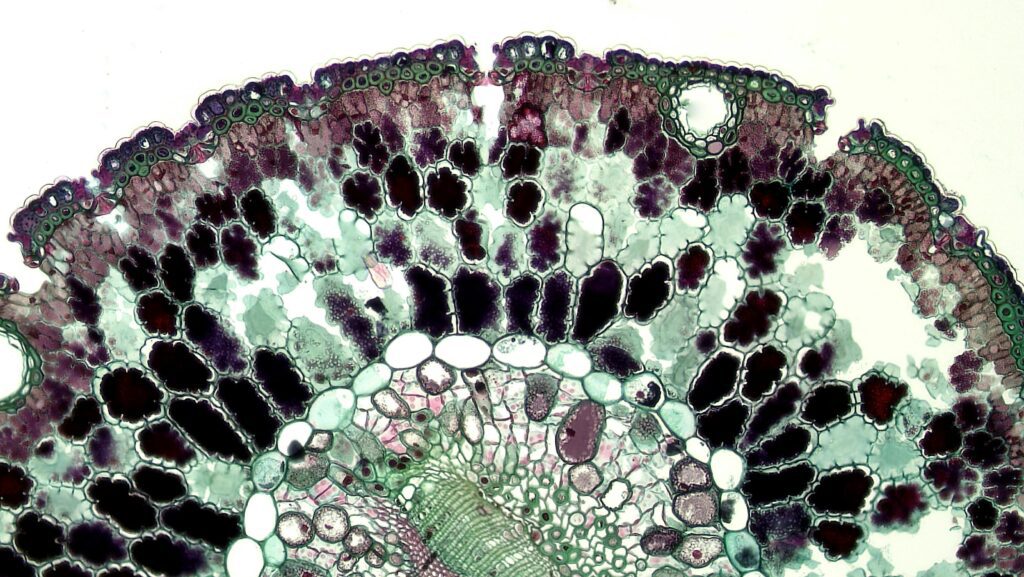Merkel Cell Carcinoma Uncovered
Welcome to Lady In The Shade, where we shine a light on the lesser-known corners of skin health. Today, we’re diving into the world of Merkel cell carcinoma (MCC), a type of skin cancer that might not be as familiar but is every bit as serious. Merkel cell carcinoma (MCC) is often dubbed the skin’s hidden warning, marking an aggressive battle beneath the surface. You might be asking, “What exactly are Merkel cells?” That is a valid question! Situated within the skin, Merkel cells are involved in our sense of touch, though their entire purpose is still somewhat enigmatic. Despite being less prevalent than other forms of skin cancer, MCC is notorious for its aggressive behavior, capable of rapid growth and metastasis. Early detection is crucial for a favorable outcome.

The Origins: Where Does Merkel Cell Carcinoma Begin?
Pinpointing the exact causes of MCC is complex, with several factors believed to play a role in its development:
- Ultraviolet (UV) exposure: Prolonged exposure to the sun or frequent use of tanning beds increases risk.
- Immune system compromise: A weakened immune defense heightens susceptibility, whether due to medication, illness, or other conditions.
- Age factor: MCC predominantly affects those over 50, though younger individuals are not immune.
- Merkel Cell Polyomavirus: This virus is often associated with MCC tumors, suggesting a connection.

Recognizing MCC: Key Signs and Symptoms
MCC can easily be mistaken for benign skin issues, such as a simple pimple or mole. However, its rapid growth rate is a red flag. Key indicators include:
- A quickly enlarging, painless nodule.
- Lesions that may be reddish, bluish, or match the skin tone.
- Predominantly found on areas exposed to the sun, such as the face, neck, and arms.
Lady In The Shade tip: Awareness and early consultation with a dermatologist are critical steps for anyone observing unusual skin changes.

Navigating Treatment for Merkel Cell Carcinoma
Facing an MCC diagnosis can feel overwhelming, but advancements in medicine offer multiple therapeutic paths:
Surgery
Surgical intervention involves removing the tumor along with some surrounding tissue.
Radiation therapy
Radiation therapy employs potent energy beams to destroy cancer cells.
Chemotherapy
Chemotherapy utilizes medication to target and eliminate cancer cells.
Immunotherapy
Immunotherapy boosts the body’s natural defenses to combat the cancer.

FAQs: Clearing the Air on MCC
- Is MCC more prevalent in men or women? Notably, men are nearly twice as likely to develop MCC.
- Can Merkel cell carcinoma be fatal? Without early detection and treatment, MCC poses a significant mortality risk. At Lady In The Shade, we emphasize the importance of early detection, which can give many patients a better chance of receiving proper treatment.
- How does MCC differ from melanoma? Though both are skin cancers, they originate from different types of cells and exhibit unique behaviors.

Parting Thoughts: Arm Yourself with Knowledge
As we wrap up, it’s vital to acknowledge the importance of vigilance against Merkel cell carcinoma. With Lady In The Shade’s curated knowledge, you can confront it. Prioritize regular dermatological check-ups and protective measures against UV exposure. Stay informed, stay protected, and embrace a proactive approach to skin health. Remember, your awareness and actions today can pave the way for a healthier tomorrow.
Find Your Shade,
Jordan, Lady In The Shade
Medical Disclaimer: The information provided on this blog is for informational purposes only. It is not a substitute for professional medical advice, diagnosis, or treatment. Always seek the advice of your physician or other qualified health providers with any questions you may have regarding a medical condition. Never disregard professional medical advice or delay seeking it because of something you have read on this website.